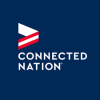Legislation

FCC Adopts Rules Requiring Georouting for All Wireless Calls to 988
The Federal Communications Commission approved rules that will require all U.S. wireless carriers to implement georouting for calls to the 988 Lifeline. These rules will facilitate access to the 988 Lifeline’s critical local intervention services by requiring wireless providers to implement georouting solutions for 988 calls to route wireless calls to local crisis centers based on the geographic area associated with the origin of a 988 call rather than by area code and exchange, while protecting the privacy needs of the caller.

FCC Requires All Mobile Phones To Be Hearing Aid Compatible
The Federal Communications Commission adopted new rules establishing that 100% of all mobile handsets—such as smartphones—must be compatible with hearing aids. With this change, 48 million Americans with hearing loss will be able to choose among the same mobile phone models that are available to all consumers. Under the new rules, after a transition period, Americans with hearing loss will no longer be limited in their choice of technologies, features, and prices available in the mobile handset marketplace.

Biden-Harris Administration Connects People, Farms and Businesses to Reliable High-Speed Internet in the Dakotas and Eight States
U.S. Department of Agriculture (USDA) Rural Development Under Secretary Dr. Basil Gooden announced nearly $173 million in funding to connect rural residents, farmers and business owners in the Dakotas and eight other states to reliable high-speed internet. Projects are being financed by the fifth round of the ReConnect Program.
Gov Walz unveils Harris' plan for rural voters as campaign looks to cut into Trump's edge
Democratic Vice Presidential Nominee Gov. Tim Walz (D-MN) unveiled his ticket's plans to improve the lives of rural voters, as Vice President Kamala Harris (D-CA) looks to cut into Donald Trump's (R-FL) support. The Harris-Walz plan calls on Congress to permanently extend telemedicine coverage under Medicare, a pandemic-era benefit that helped millions access care that is set to expire at the end of 2024.
Broadband Affordability: What Should Change?
The Affordable Connectivity Program, or ACP, enrolled more Americans than any previous broadband affordability program in the United States. Despite that success, the ACP faced substantial criticism from conservative members of Congress who saw it as giving away taxpayer dollars to many households that don’t actually need help affording their internet bill. The question going forward is not if the government will subsidize broadband service for Americans, but how. This paper attempts to inform that debate by examining four specific critiques of the ACP:

Q Link Wireless Pleads Guilty to Defrauding Lifeline Program
Issa Asad, 51, of Southwest Ranches (FL), and Q Link Wireless LLC, of Dania Beach (FL), pleaded guilty to conspiring to defraud and commit offenses against the United States in connection with a years-long scheme to steal over $100 million from the Federal Communications Commission's Lifeline program. Asad, Q Link’s CEO, also pleaded guilty to laundering money from a separate scheme to defraud a different federal program meant to aid individuals and businesses hurt by the Covid-19 pandemic.

Build America Buy America: Companies Self-Certify Domestic Production for the BEAD Program
The U.S. Department of Commerce released the first version of this Self Certification list, which allows manufacturers who have invested in domestic manufacturing to voluntarily ‘certify’—at the risk of federal penalty—that certain equipment they make meets the domestic manufacturing requirement listed in the Build America, Buy America (BABA) waiver for the Broadband Equity, Access, and Deployment (BEAD) Program. This list is a direct response from manufacturer feedback that NTIA heard during the c

Biden-Harris Administration Awards $6.3 Million to Idaho to Implement Digital Inclusion Efforts
The Department of Commerce’s National Telecommunications and Information Administration (NTIA) awarded more than $6.3 million to Idaho to implement its Digital Equity Plan. This funding comes from the $1.44 billion State Digital Equity Capacity Grant Program, one of three Digital Equity Act grant programs created by the Bipartisan Infrastructure Law.
Utah Broadband Center Announces Key Dates for Utah’s BEAD Pre-application Portal
The Utah Broadband Center (UBC), part of the Governor’s Office of Economic Opportunity (GOEO), announces Utah’s launch of the registration and pre-application portal for the state’s Broadband Infrastructure Grant (BIG). This grant is made possible through the federally funded Broadband Equity, Access, and Deployment (BEAD) program. The $42.5 billion BEAD program, part of the U.S.

BEAD’s progress and variety: Some states are charging ahead but some will need more time, and BEAD mapping is complicated
As the three-year anniversary of the passage of the Infrastructure Investment and Jobs Act approaches on November 15, the Broadband Equity, Access, and Deployment (BEAD) program hasn’t connected anyone yet, but a lot is in motion. Application windows are open. Louisiana is ahead of the game and should complete its subgrantee selection soon. Some states, though, will need extended time.

